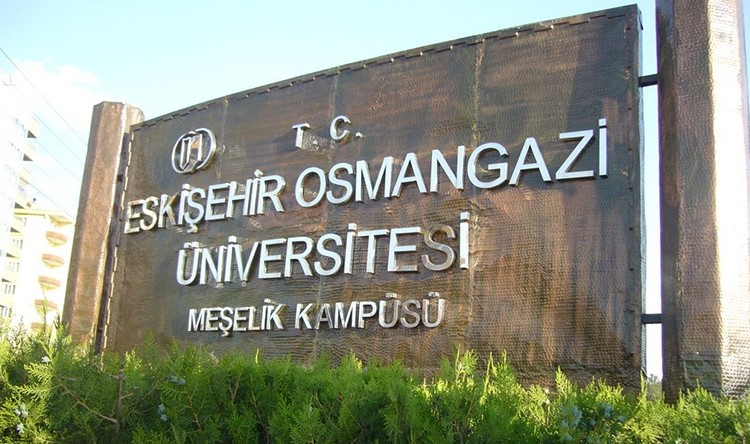Title:
Electrochemical Approaches in Biomaterials Science
Date:
January 16th, 2026 (UTC+3)
Organizer:
Eskişehir Osmangazi University
Symposium Chair:
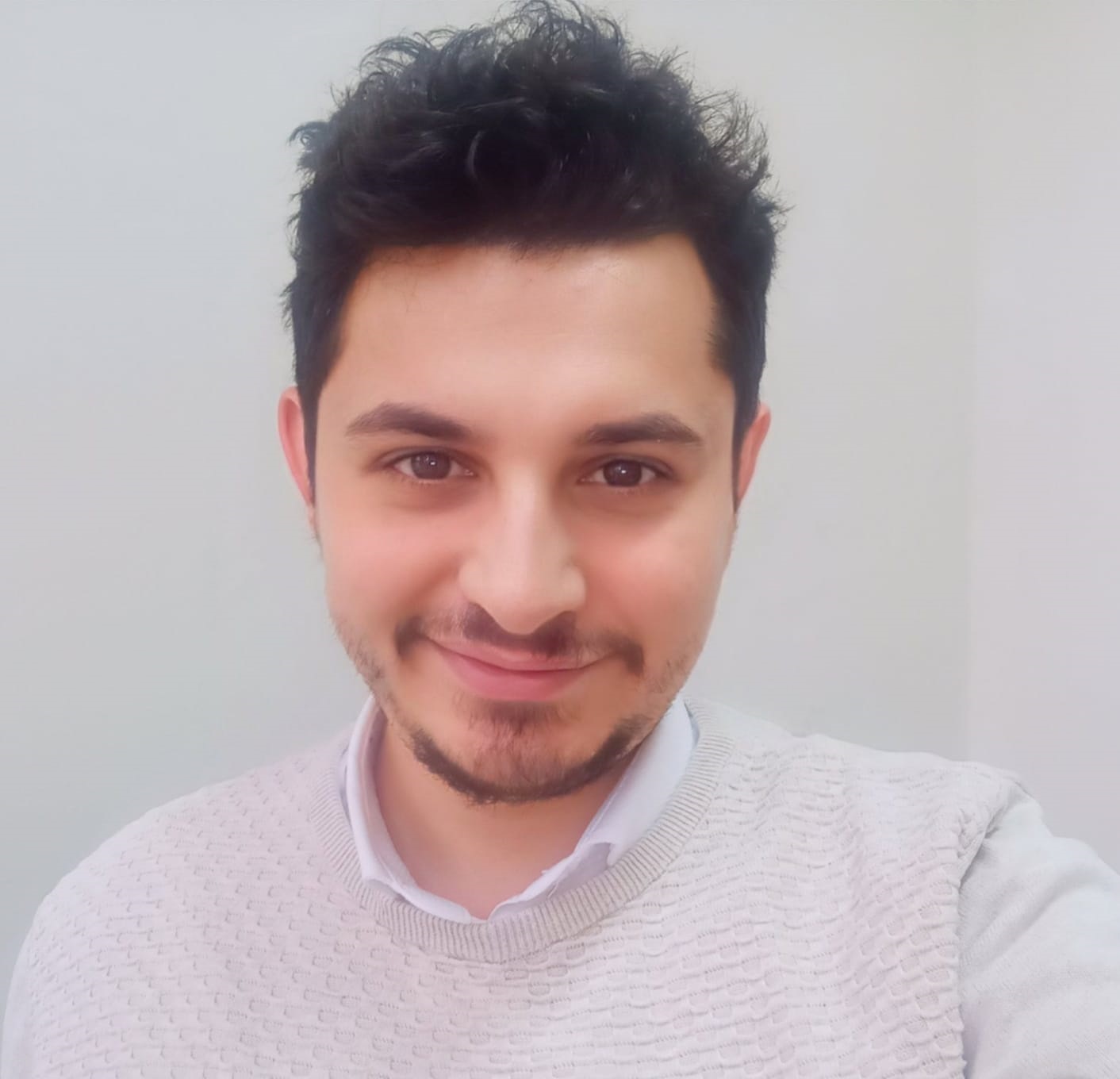
Dr. Ömer Burak İstanbullu
Personal Bio:
Dr. Omer Burak Istanbullu is an Assistant Professor and department vice chair of Biomedical Engineering Department at Eskisehir Osmangazi University. After studying in the field of biomedical engineering and specializing on tumor segmentation from magnetic resonance images at Erciyes University, he then pursued a Master's program at Istanbul Technical University and Erciyes University with the scope of biomaterial-medical imaging device compatibility. Following the Master's degree, he received a Ph.D. from Erciyes University, in the field of biocompatibility improvement of implantable intravascular biomaterials using biomimetic surface modification approaches. Dr. Istanbullu is experienced in the development and improvement of biocompatible materials using biomimetic approaches, combining the computational methods and experimental analysis to achieve the most effective solutions for the challenges related to biomaterials. His research interests include surface modification by biomimetic approaches, diamond-like carbon and carbon nanotubes, electrochemical, thermal and mechanical characterization of biomaterials, anticorrosive and biocompatible surface development. The overall goal of Dr. Istanbullu through his work is contributing to the development of new and innovative biomaterials that have the potential to reduce the biomaterial-based risks in the field of biomedical engineering.
Call for Papers
Background:
Electrochemical approaches have become indispensable in advancing biomaterials science, enabling the precise characterization and engineering of materials intended for medical use. These techniques provide vital insights into corrosion behavior, degradation mechanisms, surface modifications, and bio-interactions under physiologically relevant conditions. Beyond laboratory testing, the integration of theoretical modeling, computer simulations, and experimental investigations allows for a comprehensive understanding of how biomaterials perform in dynamic biological environments. Such multi-level studies help bridge the gap between fundamental science and clinical application, guiding the development of safer, more durable, and functional materials. From metallic implants to electroactive polymers and bio composites, electrochemical strategies continue to drive innovation in design, testing, and optimization. This symposium aims to gather experts to explore the latest developments and foster collaboration across disciplines shaping the future of biomaterials research.
Goal/Rationale:
Biomaterials are often subjected to complex chemical and biological environments, where corrosion, degradation, and surface modifications directly influence their clinical performance. Traditional characterization techniques, while valuable, may not fully capture these dynamic interactions. Electrochemical methods, including impedance spectroscopy, potentiodynamic polarization, and cyclic voltammetry, provide real-time, quantitative, and highly sensitive evaluations of biomaterial behavior in simulated body fluids. Recent advances in nanostructured coatings, conductive polymers, and multifunctional composites have expanded the possibilities for tailoring material properties to achieve optimal biocompatibility and performance. The goal of this symposium is to foster discussion on how electrochemical approaches can be harnessed not only for understanding material behavior but also for engineering next-generation biomaterials. By uniting researchers from materials science, bioengineering, and electrochemistry, the event will promote interdisciplinary collaboration and identify promising directions for future research and clinical translation.
Scope and Information for Participants:
The symposium will focus on experimental, theoretical, and applied research utilizing electrochemical methods in biomaterials science. Contributions may address, but are not limited to:
- Electrochemical corrosion and degradation studies of metallic, polymeric, and ceramic biomaterials
- Electrochemical techniques for surface modification and functionalization
- In situ monitoring of biomaterial-tissue interactions
- Conductive and electroactive biomaterials for tissue engineering and regenerative medicine
- Biosensors and implantable devices utilizing electrochemical principles
- Modeling and simulation of electrochemical processes in biomedical systems
Researchers, engineers, and clinicians interested in the intersection of electrochemistry and biomaterials are invited to submit abstracts. Presentations will be selected to encourage both fundamental and application-oriented discussions.
Topics:
The main topics of this symposium are listed below.
Electrochemistry and Biomaterials
- Electrochemical Corrosion and Degradation
- Surface Modification
- Biomaterials and Biosensors
- Tissue Engineering
- Biocompatibility
- Metallic Implants
- Electroactive Polymers
Meanwhile, submissions aligned with the overall conference theme are also welcome.
Materials Science and Engineering
- Advanced Nanomaterials and Graphene
- Advanced Materials Processing and 3D Printing
- Emerging Materials
- Electric and Magnetic Materials
- Glasses, Ceramics and Composites
- Material Thermodynamics
- Optic and Acoustic Materials
- Semiconductors and Super Conductors
- Advanced Materials and Technologies
- Biomaterials
- Energy Materials
- Functional Materials
- Material Mechanics and Structure
- Metal and Alloy
- Polymer Science and Engineering
- Smart Materials and Structures
Chemical Science and Technology
- Modelling Simulation and Optimization
- Mass Transfer as Separation Processes
- Physical and Organic Chemistry
- Polymer Science and Engineering
- Transport Phenomena and IPC
- Chemical Reaction Engineering and Catalysis
- Oil, Gas and Petroleum Refineries
- Chemical Engineering Thermodynamics
- Electrochemistry
- Process Heat Transfer
- Nano-Chemistry and Nanotechnology
Environmental Engineering
- Pollution Treatment Technology
- Energy Technologies
- Geography
- Pollution Control
- Sustainability Technology
- Waste Management
- Atmospheric Science
- Environmental Chemistry
- Geophysics
- Hydrology
- Oceanography Physics
- Soil Science
Submission:
Prospective authors are kindly invited to submit full papers that include title, abstract, introduction, tables, figures, conclusion and references. It is unnecessary to submit an abstract in advance. Please submit your papers in English.
Each paper should be no less than 4 pages. One regular registration can cover a paper of 6 pages, and additional pages will be charged. Please format your paper well according to the conference template before submission. Paper Template Download
Please prepare your paper in both .doc/.docx and .pdf format and submit your full paper by email with both formats attached directly to sympo_eskisehir@confmcee.org
Important Dates:
| Process | Date & Time |
|---|---|
| Submission Deadline | January 9, 2026 |
| Symposium Date | January 16, 2026 |
| Notification of Acceptance | 7-20 workdays |
Publication:
Accepted papers of the symposium will be published in Proceedings of SPIE (Print ISSN: 0277-786X), and will be submitted to EI Compendex, Conference Proceedings Citation Index (CPCI), Crossref, CNKI, Portico, Engineering Village (Inspec), Google Scholar, and other databases for indexing. The situation may be affected by factors among databases like processing time, workflow, policy, etc.
Publication info
Title: Proceedings of SPIE
Press: SPIE Press, United States
ISSN: 0277-786X, 1996-756X (electronic)
This symposium is organized by CONF-MCEE 2026 and it will independently proceed the submission and publication process.
* Please note that the publication policy may vary between different publishers. For details regarding the publication process, kindly refer to the policies of the respective publisher.
Highlights
The symposium provided an advanced platform for researchers and scientists working at the interface of electrochemistry, biomaterials, and biomedical device engineering. The sessions focused on contemporary electrochemical strategies for probing structure–property–function relationships in biomaterials exposed to physiologically relevant environments.
Research discussions addressed electrochemical degradation kinetics, interfacial charge-transfer phenomena, and surface-mediated reactions governing the long-term stability and performance of metallic, polymeric, ceramic, and composite biomaterials. Particular emphasis was placed on correlating electrochemical response with microstructural features, surface modifications, and functional coatings, enabling mechanistic interpretation beyond conventional assessments of material performance.
The symposium also highlighted integrated experimental–computational frameworks, including data-driven modeling and equivalent circuit representations, to support predictive evaluation of in vivo-relevant behavior from in vitro electrochemical measurements. These approaches were discussed as critical tools for accelerating materials optimization and reducing the gap between laboratory testing and clinical translation.
In addition, significant attention was devoted to electrochemical biosensors and implantable sensing systems, focusing on material selection, interface engineering, and signal stability for real-time monitoring of biological processes and tissue–material interactions. Overall, the symposium reinforced electrochemistry as a high-resolution, mechanism-oriented research framework, supporting the development of next-generation biomaterials and biointegrated devices.
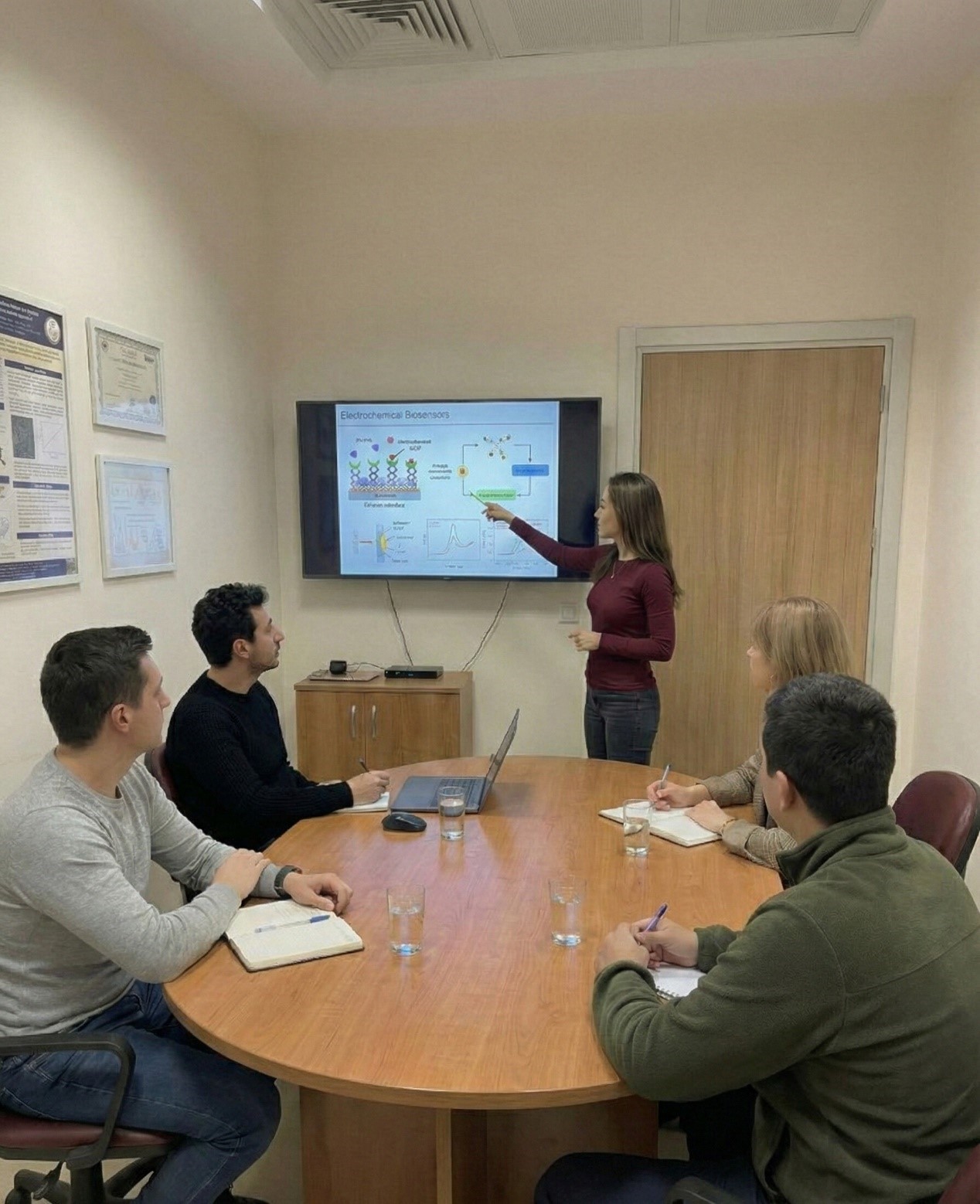
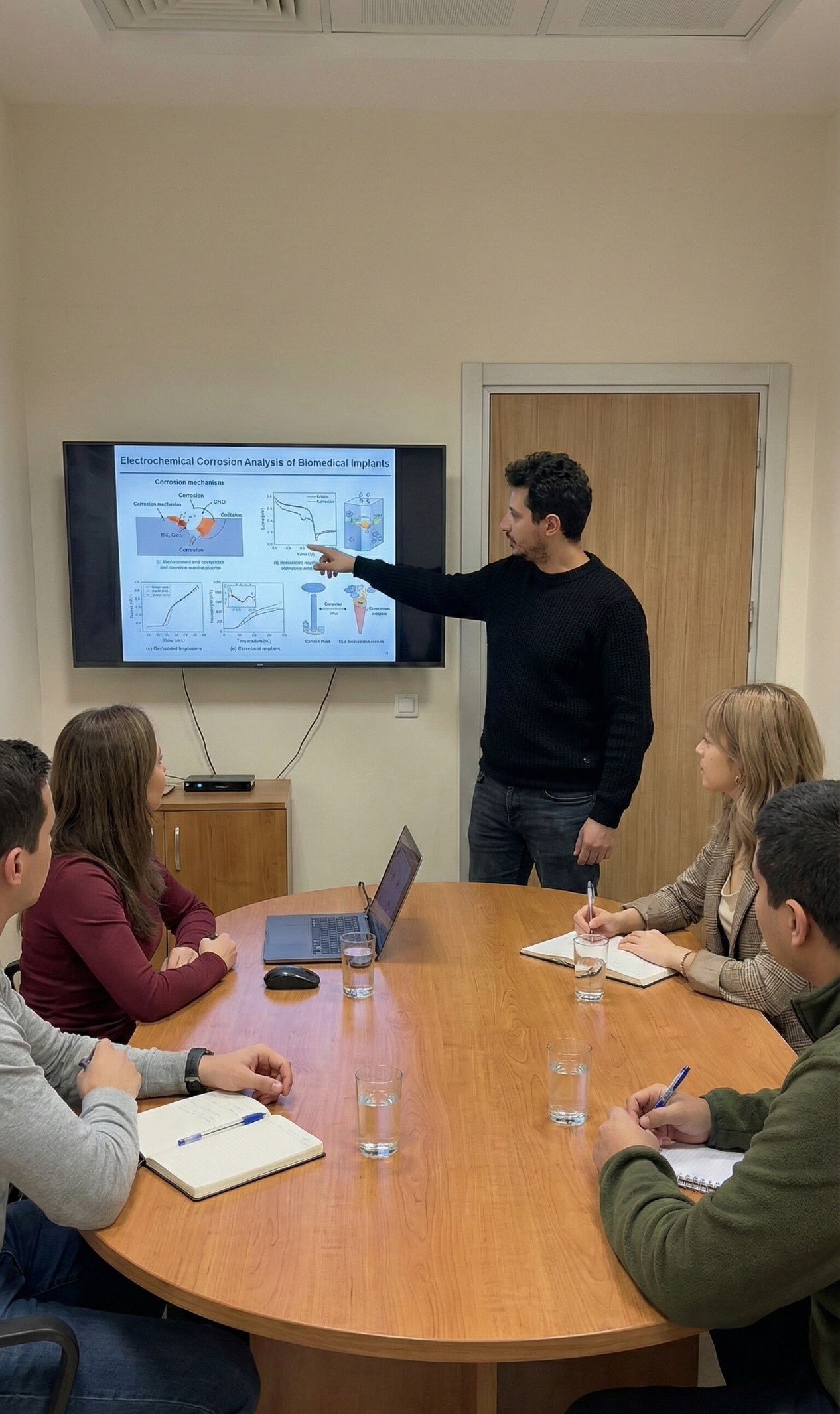
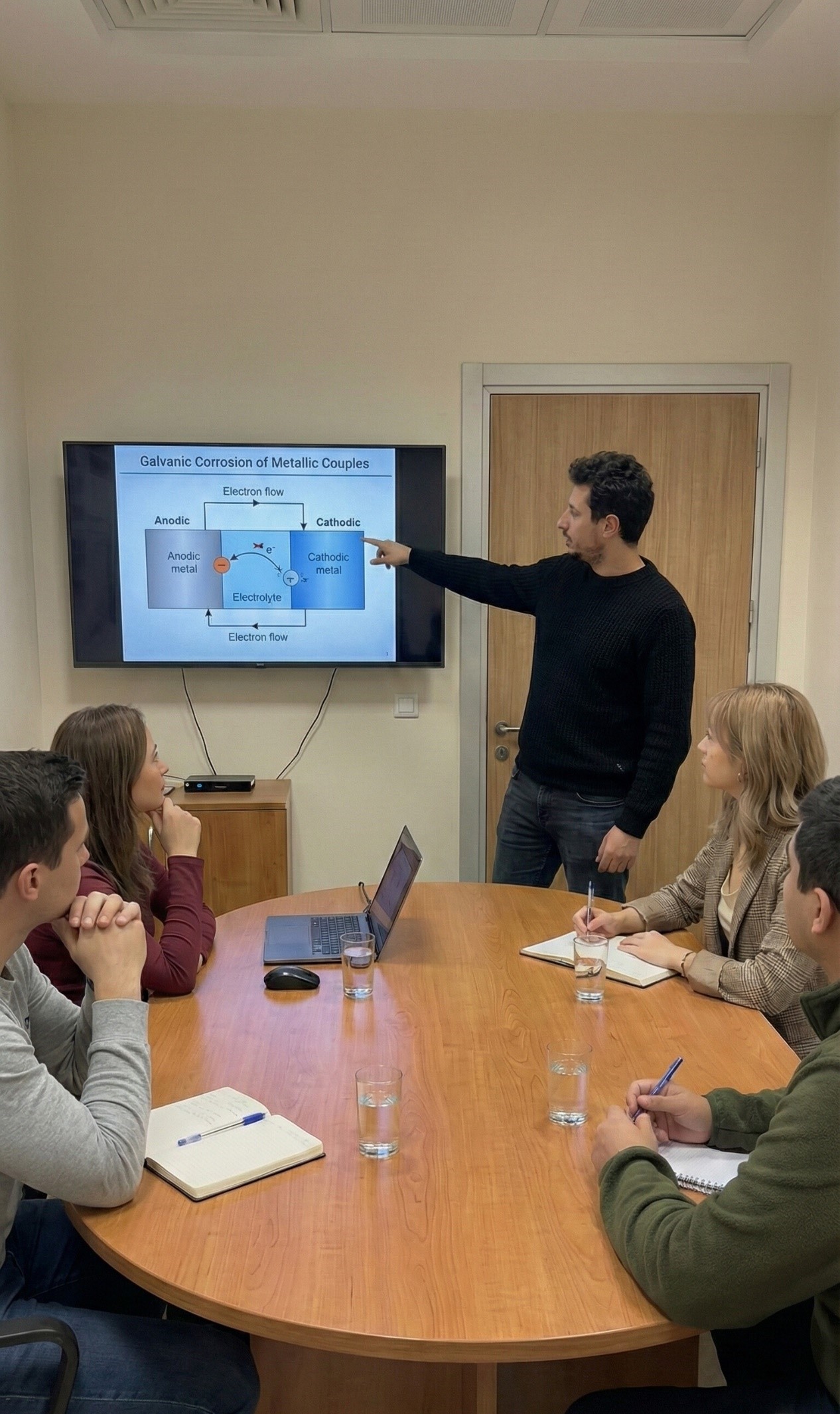
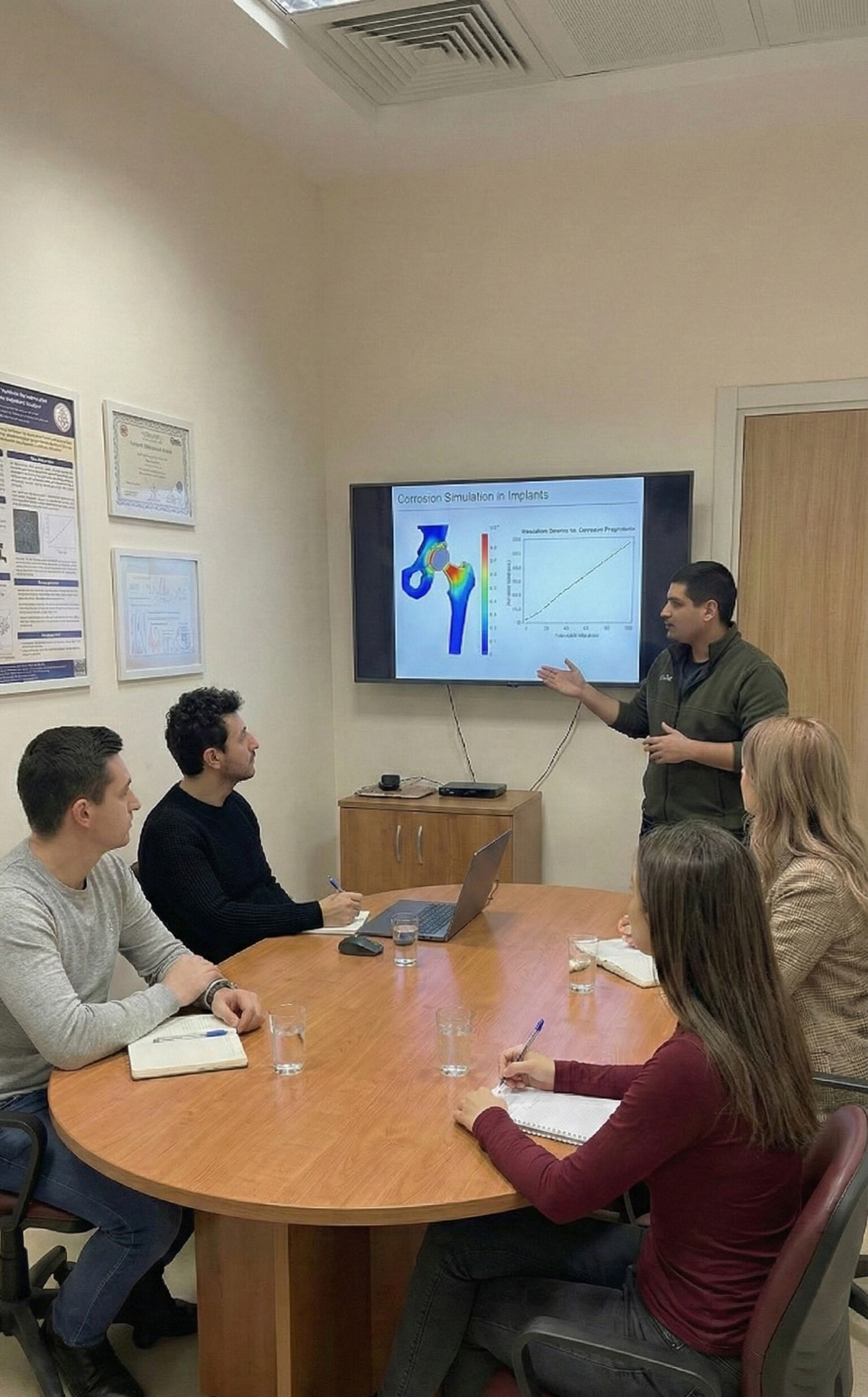
Ways to Participate
Venue:
Eskişehir Osmangazi University, Meşelik Campus, Faculty of Engineering and Architecture, Department of Biomedical Engineering, 26040, Odunpazarı, Eskişehir, Türkiye
Attend in Person:
If you want to attend the symposium on-site, please email sympo_eskisehir@confmcee.org. The symposium seats are limited. Both contributors and non-contributors who wish to participate in the symposium in person need to apply to the symposium organizers.
VISA:
Welcome to GOV.TRVisitors who are not exempt from entry visa must obtain their visas or schedule an appointment with the Turkish Consular offices via Pre-Application System for Turkish Sticker Visa ( www.visa.gov.tr ). The applicants who meet the requirements will be directed by the Pre-Application System for Turkish Sticker Visa to the e-Visa system ( www.evisa.gov.tr) In those countries where Türkiye does not have a consular representation can also use online scheduling for appointments with the nearest accredited consular office of Türkiye.
- In order to avoid inconveniences that may be caused by delays in processing, it is recommended to apply for visas at least one month in advance before the planned travel.
- The visas submitted to foreigners do not guarantee absolute rights of entry to Türkiye.
- Visa fees are not refundable in cases where applications are rejected
- All applicants are required to have a medical insurance that will be valid during their stay in Türkiye.
- The length of stay provided by visa or visa exemption cannot exceed 90 days within each 180 days. The regulation of 90 days of stay within the last 180 days is binding for all foreigners that will travel to Türkiye.
- It is not possible for foreigners holding two passports to stay in Türkiye for 90 days each with their two different passports within the last 180 days.
- In all types of visa applications, Turkish consular offices may issue visas with a maximum duration of stay of 90 days. The foreigners who wish to stay longer than 90 days in Türkiye, should apply for "Short Term Residence Permit" at the Provincial Directorate of Migration Administration in order to extend their residence.
- The residence permit of the foreigners will be cancelled if they stay outside Türkiye for longer than 120 days in total during the last year.
- For United Nations (UN) Travel Document (Laissez-Passer) holders who have blue UN travel documents, visa exemption with 90 days length of stay within the preceding 180 days may apply during their official visit to Türkiye if they can certify their official assignment. Red UN Travel Document holders, shall be exempt from entry visa and may stay in Türkiye 90 days within the preceding 180 days regardless of their purpose of visit. General visa provisions shall apply for Blue UN travel document holders subject to regulations specified according to their country of origin.
- Visa applications for travels except for touristic or trade purposes (work or study etc.) will need to obtain visa through Turkish Representations in the abroad.
- Regardless of the visa regime applied towards the citizens of a country, the travel document holders of that country need to obtain visa from Turkish missions beforehand.
- Any applicant under the age of 18 must submit official written approvals from both parents. For those applicants who certify that their parents are officially divorced and prove the parent holding their custody as well as for those with one parent deceased, visas may be issued in accordance with their purpose of visit.
- The authorization of processing the residence permit applications submitted by the following persons who enter Türkiye availing visa-free regime and without requirement of obtainment of Student Visas lays with Local Immigration Offices (Provincial Directorates of Migration): Foreigners who arrive in Türkiye upon invitations by universities under Turkish Higher Education Board to study at the associate, undergraduate, graduate, post-graduate, Ph. D levels pursuant to international student exchange programs, cultural programs as well as under EU Education and Youth Programs.
- For foreigners wishing to enter Türkiye via naval ports with touristic purposes, visa-free entry permits may be issued by the local governorates. These permits shall have a maximum 72 hours duration of stay and will be only valid for sightseeing purposes in the vicinity of naval ports where they entered the country. This practice, as it intends to facilitate entry for those visitors subject to visa, does not entitle visitors to visa. Passports of these visitors are not retained by the border authorities; however, visitors are given "Harbor City Entry Permit" which is required to be returned to the authorities upon their exits.
- Any piece of data submitted here may be processed and stored in database accessible to the relevant Turkish authorities in accordance with their respective mandates.
Tourist Visa
- If an invitation letter is submitted for a Touristic Visa application, it must include the inviting person's TR Identity Number, clear identity, the list of invitees, permanent address, contact number, length and purpose of stay and the affinity with the applicant must be stated in the letter. If the inviting side is an organization or a company, tax registration certificate of the organization will be required. In the invitation letter it is also required for the inviting person/authority to pledge for covering victuals and accommodation expenses and for taking their own responsibility. The applicant is required to have sufficient and/or regular remunerations.
